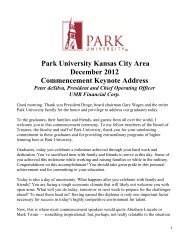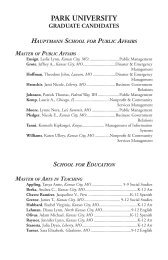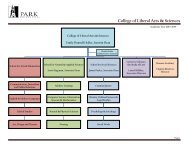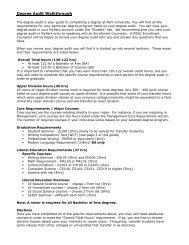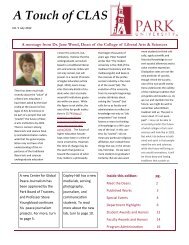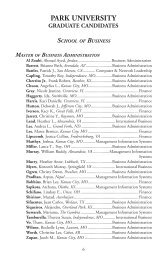How to Write a Radio Serial Drama for Social Development- PDF
How to Write a Radio Serial Drama for Social Development- PDF
How to Write a Radio Serial Drama for Social Development- PDF
Create successful ePaper yourself
Turn your PDF publications into a flip-book with our unique Google optimized e-Paper software.
68 Chapter Five: Character <strong>Development</strong><br />
Range of Characters <strong>for</strong><br />
Enter-Educate <strong>Drama</strong><br />
Heroes and Heroines:<br />
1. Individual hero or heroine<br />
2. Older, reliable couple<br />
3. Young couple facing life<br />
<strong>to</strong>gether<br />
4. Counselor, sage, advisor,<br />
advocate<br />
5. Central uniting character<br />
6. Seeker<br />
7. Comic<br />
Villains or Antagonists:<br />
1. Individual evil villain<br />
2. Doubter, skeptic<br />
3. Young couple without<br />
mutual support<br />
4. Wayward youngster<br />
Selecting Characters<br />
The writer must choose characters who can fulfill all the requirements of the<br />
message in a natural manner. The event list created during plot development<br />
will dictate which characters are necessary. The event list <strong>for</strong> Grains of Sand<br />
in the Sea (Chapter 4), <strong>for</strong> example, requires these characters:<br />
• A young couple about <strong>to</strong> be married;<br />
• A woman within the first few months of pregnancy;<br />
• A couple with two children who choose <strong>to</strong> use an IUD <strong>to</strong> limit<br />
their family’s size;<br />
• A family that has been very poor but is now starting <strong>to</strong> move<br />
up in life;<br />
• A midwife;<br />
• A headstrong community member who does not listen <strong>to</strong> advice; and<br />
• A respected community member (or couple) <strong>to</strong> whom others turn<br />
<strong>for</strong> guidance.<br />
Listeners find a serial more attractive when the characters who fulfill the<br />
essential roles are distinctly different from one another. A wide range of<br />
characters also allows the message <strong>to</strong> be presented and repeated in a more<br />
natural fashion. Because an effective serial motivates change of<br />
many kinds, it is useful <strong>to</strong> include characters who can portray<br />
each of the various Steps <strong>to</strong> Behavior Change—that is,<br />
knowledge, approval, intention, practice, and advocacy (see the<br />
Prologue). <strong>Write</strong>rs should consider the following options,<br />
including both heroes and villains.<br />
Heroes and Heroines<br />
These characters possess positive values and respond<br />
constructively <strong>to</strong> the serial’s message. They must have some<br />
dominant personality trait, however, that makes each one<br />
unique and that may cause problems <strong>for</strong> or bring benefits <strong>to</strong><br />
other people.<br />
1. The suffering hero or heroine. This is a generally “good”<br />
person who becomes involved in a conflict through no fault<br />
of his or her own. The hero or heroine usually suffers<br />
because of a positive personality trait that is exaggerated,<br />
such as being <strong>to</strong>o trusting, or because of a personality<br />
weakness, such as being careless about small details. In the<br />
long run, however, heroes and heroines prevail against the<br />
evil <strong>for</strong>ces aligned against them because of their outstanding<br />
moral virtue.<br />
Alternatively, the hero or heroine’s role in the drama<br />
might be <strong>to</strong> make a positive impact on the lives of other<br />
people (as would be the case, <strong>for</strong> example, <strong>for</strong> the older<br />
couple described below). This type of heroic character also




